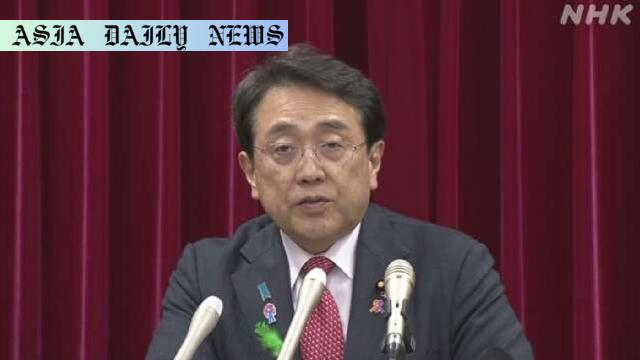Tariffs: Japan strongly urges the Trump administration for the removal of newly imposed tariffs, aiming at a balanced trade strategy.
- Japan’s negotiator pledges to push for zero tariffs in second round of talks with the US.
- Minister Akazawa Ryosei emphasizes Japan’s contributions to the US economy as leverage.
- Japan urges focusing on investment and economic initiatives instead of trade barriers.

Japan’s Persistent Push Against US Tariffs
Japan is ramping up efforts to eliminate newly imposed tariffs by the Trump administration. Leading Japan’s negotiations, Economic Revitalization Minister Akazawa Ryosei is determined to achieve a tariff-free trade relationship between the two nations. Before departing for crucial talks in Washington, Akazawa firmly stated that Japan’s goal remains clear and unwavering: the removal of these new US trade levies.
Strongly advocating for Japan’s position, Akazawa highlights that Japanese investments have played a pivotal role in the United States’ economic growth, particularly in generating employment opportunities. He argues that these contributions deserve recognition by eliminating trade barriers, further leveling the playing field and fostering a fairer economic alliance. Japan insists that a balanced relationship, devoid of restrictive measures, could pave the way for stronger bilateral cooperation.
Highlighting Economic Contributions and Deficits
Japanese officials have consistently emphasized their country’s positive role in American economic development. With massive investments flowing into US industries, ranging from automotive to tech, Japan’s economic influence is undeniable. Furthermore, Japan’s efforts to address the trade deficit have been significant, showcasing the country’s willingness to work collaboratively on economic concerns.
Minister Akazawa aims to redirect discussions toward more constructive areas, including investments, innovation, and broader economic initiatives. He believes that these topics can solidify growth for both nations, balancing out disagreements over tariffs while fostering long-term partnerships.
Navigating US-Japan Relations Amid Tensions
A vital aspect of these negotiations lies in the distinct relationship between Japan and the United States. Akazawa described Japan as a “special country” to the US, deserving recognition as a role model for trade. This sentiment underscores the unique collaboration between the two economies, situated both as allies and global leaders. By highlighting this bond, Akazawa hopes to inspire a forward-thinking approach to trade policies.
However, with the Trump administration’s emphasis on protecting American jobs and reducing imports, there is clear friction. Japan’s negotiators will need to craft compelling arguments, underscoring mutual benefit to achieve their ambitious goal of tariff removal. Resolving these differences will result in not only economic gain but also a reinforced partnership on the global stage.



Commentary
Japan’s Strategic Focus in Trade Negotiations
Japan’s steadfast approach to the removal of US tariffs showcases the nation’s strategic thinking in fostering diplomatic trade relationships. By centering the conversation on investment and collaboration rather than conflict, Japan’s negotiators demonstrate a forward-thinking mindset that prioritizes mutual benefit. Minister Akazawa Ryosei’s determination reflects a broader narrative of strength and adaptability.
The US-Japan Economic Bond
The relationship between the US and Japan has deep historical and economic significance. Japan’s massive investments in the US economy, particularly in manufacturing and technology, have created numerous opportunities. These contributions serve as a solid foundation for negotiation, giving Japan leverage to contest unfair trade practices. By emphasizing shared goals, both nations stand to strengthen their roles as leading economic powers.
The Path Ahead
As talks progress, challenges will undoubtedly arise. The Trump administration’s focus on reducing imports aligns with protecting the American workforce, yet this must coexist with recognizing allies’ contributions. For Japan, navigating these complexities will require balance, persistence, and patience. Amid trade uncertainties, fostering trust and collaboration will be key to achieving a fair resolution.